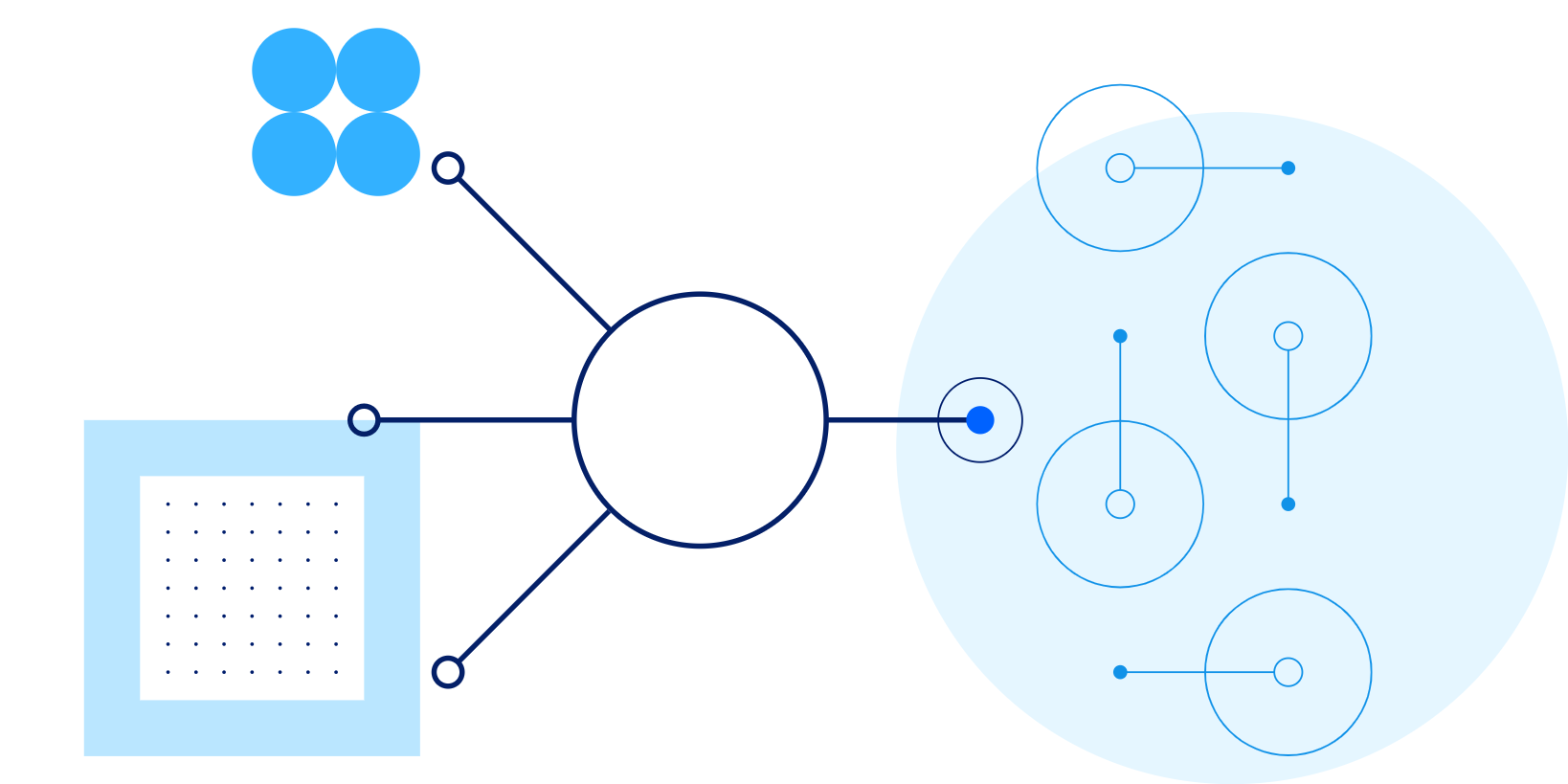About cookies on this site Our websites require some cookies to function properly (required). In addition, other cookies may be used with your consent to analyze site usage, improve the user experience and for advertising. For more information, please review your options. By visiting our website, you agree to our processing of information as described in IBM’sprivacy statement. To provide a smooth navigation, your cookie preferences will be shared across the IBM web domains listed here.
Perspectives
Degree Apprentices – working for the tech sector
3 February, 2020 | Written by: Charlotte Fisher-Morecroft
Categorized: Perspectives
Share this post:
Digital & Technology Solutions degree apprentices are making an important contribution to IBM and the digital economy.
At IBM, we have over 50 Digital and Technology Solutions degree apprentices, studying at University of Exeter, Manchester Metropolitan University and the Open University. Our first cohort of degree apprentices graduated from Queen Mary University of London and Manchester Metropolitan University in 2019. The Digital & Technology Solutions degree apprenticeship had a total of 3 630 starts across all employers to 30th June 2019.
Digital Degree apprenticeships take talented school leavers from diverse backgrounds and transform them into experienced IT professionals. At the point of graduation, degree apprentices have work based experience, setting them apart from those following more traditional university routes. Degree apprenticeships benefit both employers and apprentices as our country needs to bridge technology skills gaps.
The myths around degree apprenticeships
Myth 1. There’s no need for the degree, a level 6 apprenticeship would be just as good.
Our experience is the intellectual curiosity promoted by a degree is powerful when combined with the work-based learning of an apprenticeship. Digital apprentices need flexible thinking to lead in a rapidly changing sector. Our degree apprentices are deserving of a degree: when they complete their apprenticeship, they are performing at a higher level than new graduates.
Myth 2. It’s not encouraging diversity- it’s just something for middle class kids in the know.
Our experience is the Digital & Technology Solutions degree apprenticeship encourages diversity. It not only attracts a diverse intake, it provides a ladder of progression for level 3 and 4 apprentices.
Myth 3. It’s just a free degree- public money shouldn’t subsidise this.
Our experience is degree apprenticeships allow us to develop IT professionals needed to bridge the technical skills gap. Degree apprenticeships are more than a free degree they benefit the Tech sector and wider UK economy. The work based component of the degree is vital, developing both relevant technical and soft skills.
The benefits of degree apprenticeships
Benefit 1. Degree apprenticeships provide the powerful combination of academic and work-based experience for future digital sector leaders.
The university experience promotes the thinking and intellectual curiosity we need from IT Professionals of the future. Being an IT Professional is about more than using technical skills in set job roles. Clients and internal customers need recommendations and challenges to the current ways of doing things. Future IT Professionals will need to rapidly acquire new technical skills and evaluate the impacts of new technologies. They will be trusted to ensure the Tech Sector operates in an ethical manner.
• Ed Sharpe, a second year University of Exeter degree apprentice, produced and delivered a thought leading “What is AI” presentation to over 100 client stakeholders.
• The synoptic project in the degree apprenticeship is academically rigorous but is a real- life project bringing benefits to employers. Projects at IBM have included creating chat bots, making recommendations for deployments of security software and a learning management system.
Benefit 2. On graduation, degree apprentices can perform at a higher level than new graduates.
It’s not surprising as they have a degree and work experience. Degree apprentices all work in real roles for clients or on IBM products after their induction period. So graduated degree apprentices will have more relevant work-based skills than graduates following a more traditional route. Degree apprentices can also achieve strong academic results and the indication is they can outperform traditional students. Therefore, parity of esteem, retaining the degree award for the level 6 apprenticeship, seems fair.
• Our graduated degree apprentices work in roles as: UX Designer & Design Thinking Workshop Leader, Availability Manager, Cloud Seller and Project Office Manager. Graduating in July 2019, they are 2 promotions ahead of a graduate starting at IBM.
• Evidence compiled by the Tech Partnership on the first cohort of apprentices to graduate is 94 out of 151-degree apprentices received 1st or 2:1 degree. All our first cohort of IBM Digital & Technology Solutions degree apprentices achieved first class or upper second-class degrees.
Benefit 3. There are multiple examples of how degree apprenticeships increase diversity and provide a ladder for progression.
This benefits IBM as an organisation and benefits the individuals concerned. Universities will consider degree apprenticeship candidates, who don’t meet formal entry requirements. We’ve agreed entry exceptions for strong candidates, who show an aptitude for technology, maturity and strong client facing skills. These candidates often achieve first class marks in their degree and perform strongly in their apprenticeship.
• Our 2018 intake onto the Digital & Technology Solutions degree apprenticeship was 58% female. This compares favorably with statistics for computer science undergraduates.
• 22% of our degree apprentices completed a level 3 or level 4 apprenticeship before the degree apprenticeship. 20% of our degree apprentices come from our Futures placement year scheme, which is itself a progression route for our Ignite “Movement to work” trainees.
• 42% of our year 1-degree apprentices at University of Exeter are from a UK BAME background.
• The personal stories behind the statistics are compelling. One of our degree apprentices became a father shortly after leaving school. He completed a level 4 apprenticeship and now works with AI mainframe technology, while studying for an Open University degree apprenticeship.
Achievements of IBM degree apprentices
The achievements of degree apprentices themselves, really demonstrate the value they bring. There’s no doubt the degree combined with the practical work experience encourages talented individuals to choose this route above a conventional university route.
• Lori French, a first year University of Exeter degree apprentice developed a chatbot premiered at IBM’s Global Think Event in San Francisco in 2019 to over 30,000 people. The chatbots she’s developed serve over 60,000 customers a week using statistical big data techniques, Watson Discovery and AI.
• Tom Sherlock, a second year Queen Mary degree apprentice led a rollout project for over 1000 cash machines 2 months ahead of schedule. As a third-year degree apprentice, he won an innovation competition with a prototype for an industrial client, with a $20million revenue potential.
Further success stories on the tech can be found here.
To apply to IBM’s apprentice program, please click here.

Charlotte Fisher-Morecroft
Early Professionals Manager & Degree Apprenticeship Lead
More stories
By Helen Gowler on 3 October, 2024
Generative AI: driving a new era of HR transformation
Helen Gowler, Partner, EMEA Talent & Transformation Lead Today, I’m proud to be part of a company that’s committed to addressing gender bias in the tech industry. IBM is pioneering the use of AI to tackle this issue, and I’m excited to contribute to this effort. Our team is developing AI models that can detect […]
By Mark Restall on 18 July, 2024
Multi-Modal Intelligence Platform
Traditionally, data management systems provided only numerical or textual based business intelligence primarily for back-office users across finance, sales, customer management and supply chain. Today, we are increasingly seeing data management systems which drive key business functions requiring interrogation of multi-modal data sets from documents, presentations, images, videos to audio. This demands a more sophisticated […]
By Mark Restall and others on 16 July, 2024
The use of GenAI to Migrate and Modernise Organisational Core Programming Languages
GenAI is hugely powerful and supports a diversity of use cases by focusing on routine work – allowing people to focus time on value-add tasks, thus enhancing productivity. The focus of this use case is for an organisation which had previously focussed on a legacy set of tooling and programming languages and needed a way […]





























